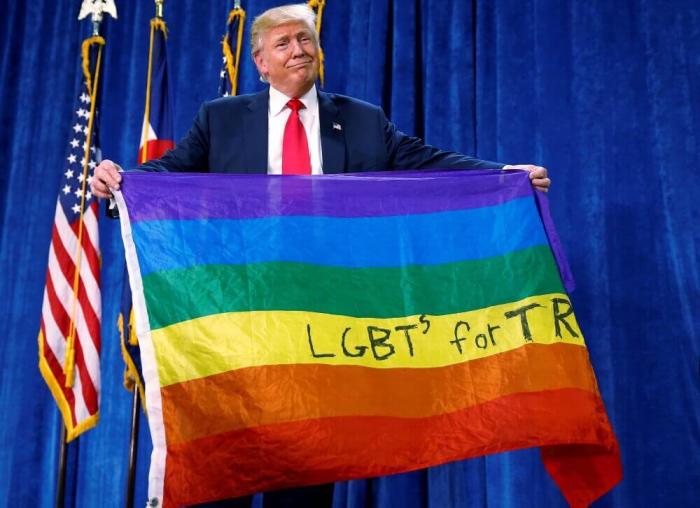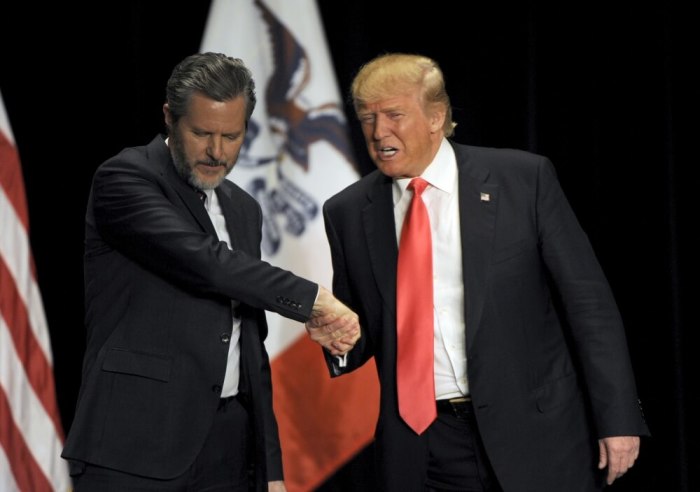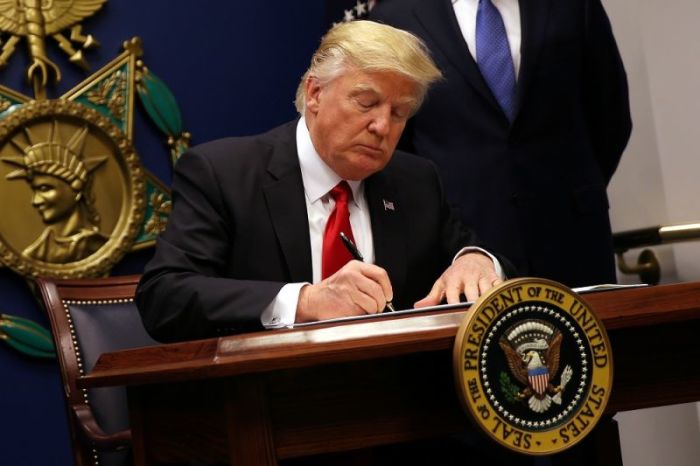On LGBT Issues, Will Trump Disappoint the Religious Right?

When Donald Trump was running for president, he garnered strong support from the Religious Right, especially after he became the Republican nominee, but beneath the veneer there has always been tension.
From the onset, conservative evangelicals who supported Trump were cognizant of the differences between the thrice-married casino owner and their views on social issues.
"[Trump is] not exactly like us," noted Robert Jeffress, senior pastor of the influential First Baptist Church of Dallas, Texas, "[but] at least he likes us."
Possibly the most notable difference might be over LGBT issues. Many social conservatives expressed dismay when Trump renewed former President Barack Obama's executive order mandating that entities with federal contracts must have anti-discrimination policies on sexual orientation and gender identity.
"President Trump should not continue to impose Obama's bad executive order that goes far beyond federal law. The fluid and subjective term 'gender identity' does not prevent discrimination in the work place but rather injects in the workplace an agenda that is harmful to businesses and to other employees," stated Liberty Counsel President Mat Staver.
"Such a policy opens women's restrooms to men. To force businesses to be at the mercy of a person's subjective and changing thoughts or be forced to allow those with ill intent to cause harm is absurd."
The question over whether Trump and the Christian conservatives who supported him will diverge on the LGBT debate is one that has existed since the Republican primary season.
Campaign Rhetoric

During the primary season, a coalition of socially conservative groups pressed Republican candidates to pledge their support for the First Amendment Defense Act.
FADA was a bill in Congress that, if enacted, would offer legal protections for gay marriage opponents, preventing for example lawsuits against business owners who refuse to service same-sex weddings for religious reasons.
By December 2015, six Republican presidential candidates had agreed to the pledge to sign it within their first 100 days in office. While Trump was not one of them, according to the coalition, he did express an overall support for FADA.
In April of last year, Trump was critical of North Carolina's law stating that people must use the bathroom that corresponded with their biological sex rather than their chosen gender identity.
"Leave it the way it is. There have been very few complaints the way it is. People go. They use the bathroom they feel is appropriate. There has been so little trouble," said Trump in one interview.
"And the problem with what happened in North Carolina is the strife and the economic – I mean the economic punishment that they're taking."
Trump vowed to protect the religious liberty of Christians at home and abroad, claiming days before the election that if Democratic opponent Hillary Clinton won "you're not going to have religious liberty."
In January 2016, Trump said in an interview with Fox News that he would appoint judges to the Supreme Court who would overturn the 2015 decision Obergefell v. Hodges, which legalized gay marriage nationwide.
"If I'm elected I would be very strong in putting certain judges on the bench that maybe could change things, but they have a long way to go. At some point we have to get back down to business. But there is no question about it," stated Trump.
"I don't like the way they ruled. I disagree with the Supreme Court in that it should be a states' rights issue."
However, soon after winning the election, Trump appeared to change his position, telling CBS in an interview that Obergefell was "settled" and "law."
Executive Orders and Cabinet Appointments

Soon after being sworn in as president, Trump opted to renew former President Obama's executive order compelling entities with federal contracts to have anti-discrimination policies regarding sexual orientation and gender identity.
According to Politico, Trump's daughter Ivanka and son-in-law Jared Kushner were integral to defeating an effort to overturn the Obama executive order.
"A draft executive order on LGBT rights that outlines how to roll back former President Barack Obama's protections and expand legal exemptions based on religious beliefs has been circulating among journalists and worried progressive groups this week," reported Politico.
"But two sources close to Kushner and Ivanka Trump, who have a record of supporting gay rights, said the couple favored putting out a clear statement from the president, promising to uphold the 2014 Obama executive order and stopping the momentum for the turnaround in its tracks."
Despite the possible pro-LGBT influence within the White House, others have noted that Trump's cabinet picks are overwhelmingly opposed to the LGBT movement.
In late November, New York Magazine ran a column noting that "of all his cabinet and cabinet-level picks so far, not one has a history of standing up for LGBT rights."
"During his acceptance speech at the Republican National Convention, Donald Trump did something unusual: He acknowledged LGBT Americans," read the column.
"Coming from a Republican politician, even an acknowledgment of the LGBT community is pretty novel. But Trump's promise was to protect LGBT Americans from hateful ideology abroad — he didn't mention the hatred many regularly experience at home, sometimes due to policies proposed by people with whom he surrounds himself."
Many view his appointment of Judge Neil Gorsuch to the U.S. Supreme Court as a fulfillment of his promise to protect and advance religious liberty at home.
Gorsuch is known for his support of religious liberty, having sided with both Hobby Lobby Stores, Inc. and the Little Sisters of the Poor in their litigation against the federal government.
An executive order on religious liberty is still pending from the White House. Religious conservatives including Family Research Council President Tony Perkins have expressed optimism regarding the pending order.
"During the general election I stated there would be areas of disagreement with Mr. Trump. But one of the strongest areas of agreement was and remains religious liberty," stated Perkins.
"I am prayerfully confident that the president and his team will issue an executive order ensuring charitable and religious organizations are not prohibited, because of their biblical views of marriage and human sexuality, from receiving contracts or grants from the federal government in order to provide critical services to people in need, like refugees and the homeless."





























